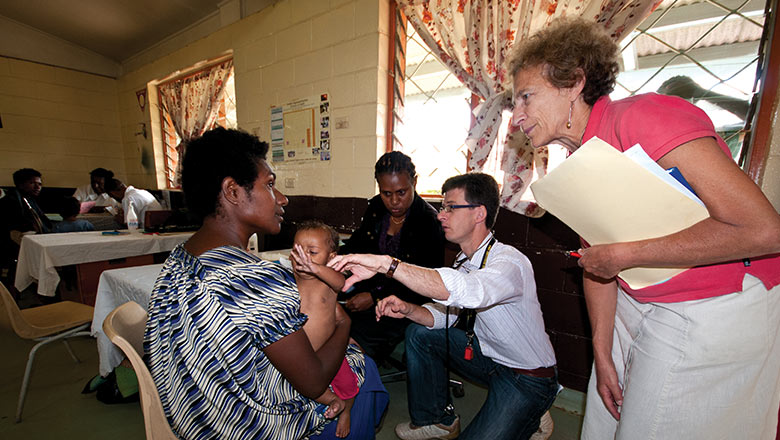Search
Research
Surveillance of antenatal influenza vaccination: Validity of current systems and recommendations for improvementAlthough influenza vaccination is recommended during pregnancy as standard of care, limited surveillance data are available for monitoring uptake.
Research
Updated model of group A Streptococcus M proteins based on a comprehensive worldwide studyGroup A Streptococcus (GAS) M protein is an important virulence factor and potential vaccine antigen, and constitutes the basis for strain typing (emm-typing).
Research
Group A streptococcal vaccines: Paving a path for accelerated developmentVaccine prevention of GAS infections and their immunological complications has been a goal of researchers for decades.
Research
Progress toward a global Group A streptococcal vaccineThe desire for an effective vaccine arises from the large burden of disease caused by the bacterium, particularly rheumatic fever and rheumatic heart disease.
Research
Reactogenicity of two 2010 trivalent inactivated influenza vaccine formulations in adultsThe objective of this tudy was to assess the reactogenicity of two 2010 trivalent inactivated influenza vaccine (TIV) formulations among adults, including...
Research
Influenza vaccine effectiveness against laboratory-confirmed influenza in healthy children aged 6-59 months:The Western Australian Influenza Vaccine Effectiveness study commenced in 2008 to evaluate a new program to provide free influenza vaccine to all children...
Research
Vaccine Effectiveness Against Laboratory-confirmed Influenza in Healthy Young Children A Case-Control StudyThe Western Australian Influenza Vaccine Effectiveness study commenced in 2008 to evaluate a new program to provide free influenza vaccine to all children...
Research
Assessing the protective effect of influenza vaccine against laboratory confirmed influenza in hospitalised children aged 6-59 monthsInfluenza vaccine was offered to all children aged 6-59 months resident in Western Australia in 2008, and we wished to evaluate the effectiveness of this immunisation programme.
Research
FluCAN - The Influenza Complications Alert NetworkThe main aim of the study is to provide timely surveillance data to public health authorities on severe influenza.

News & Events
Collaborating to prevent killer diseases in PNGFor more than a decade, The Kids Research Institute Australia and Papua New Guinea Institute of Medical Research have been fighting against killer infectious diseases.
